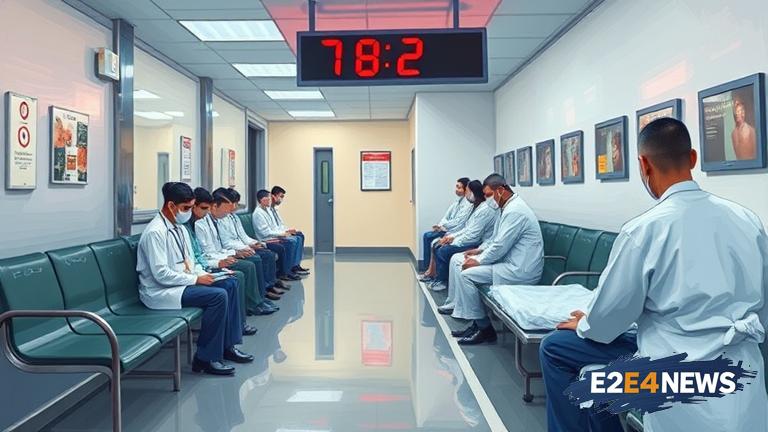A recent incident in Burnaby, British Columbia, has raised concerns about the accuracy of posted ER wait times. A mother, who wishes to remain anonymous, shared her experience of visiting the emergency room with her child, only to find that the wait time was significantly longer than what was posted. This discrepancy has sparked a discussion about the potential consequences of inaccurate wait times, including deterring people from seeking medical care. The mother’s story began when she took her child to the emergency room, expecting a wait time of around 30 minutes, as indicated by the hospital’s website. However, upon arrival, she was told that the wait time was actually several hours long. This experience has left her feeling frustrated and concerned about the impact that inaccurate wait times could have on public health. If people are deterred from seeking medical care due to perceived long wait times, it could lead to delayed treatment and potentially serious health consequences. Furthermore, inaccurate wait times can also lead to increased stress and anxiety for patients and their families, which can exacerbate existing health conditions. The issue of inaccurate wait times is not unique to Burnaby, as hospitals across the country struggle to provide accurate and up-to-date information. This can be due to a variety of factors, including high patient volumes, staffing shortages, and outdated technology. To address this issue, hospitals must invest in modernizing their systems and improving communication with patients. This could include implementing real-time wait time updates, providing clear and concise information about wait times, and offering alternative care options for non-urgent cases. Additionally, hospitals must prioritize transparency and accountability, ensuring that patients have access to accurate and reliable information. By doing so, hospitals can help to alleviate concerns about wait times and encourage people to seek medical care when needed. The mother’s experience serves as a reminder of the importance of accurate wait times and the need for hospitals to prioritize patient care and communication. As the healthcare system continues to evolve, it is essential that hospitals adapt to meet the changing needs of patients and provide accurate and reliable information. In conclusion, the issue of inaccurate ER wait times is a pressing concern that requires immediate attention from healthcare providers and policymakers. By working together, we can ensure that patients receive the care they need in a timely and efficient manner, without being deterred by inaccurate wait times.
